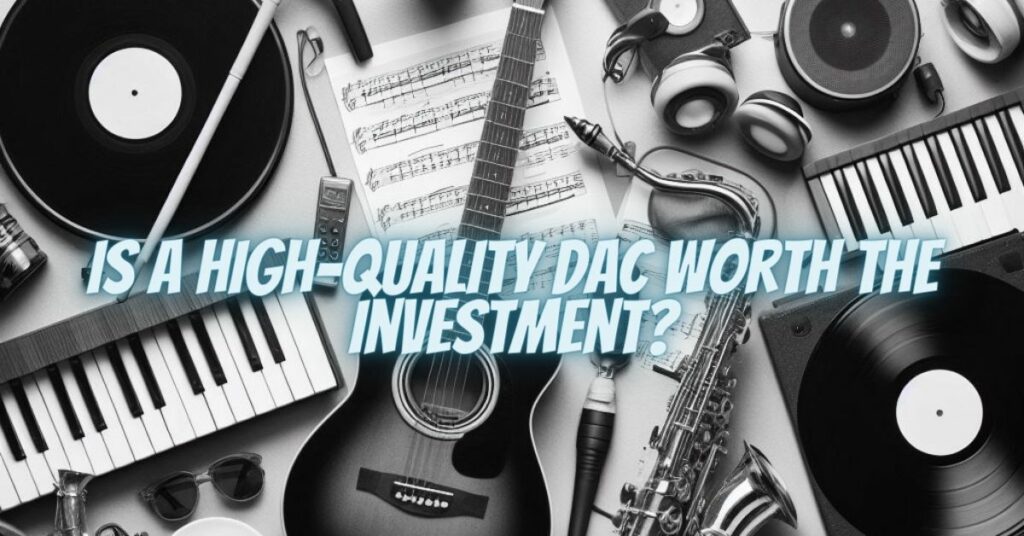The quest for the highest audio quality has led many audiophiles and music enthusiasts to explore the world of high-quality Digital-to-Analog Converters (DACs). But is investing in a high-quality DAC really worth it? In this article, we’ll explore the benefits and considerations surrounding high-end DACs to help you make an informed decision based on your audio preferences and priorities.
What Is a High-Quality DAC?
A high-quality DAC is a digital-to-analog converter known for its superior design, components, and performance. These DACs are engineered to minimize noise, distortion, and jitter, with meticulous attention to detail to ensure accurate audio reproduction. They often come with features such as high-resolution audio support, customization options, and premium build quality.
The Pros of Investing in a High-Quality DAC
- Improved Audio Quality: High-quality DACs can significantly enhance the audio quality of your digital sources. They offer cleaner, more detailed sound, especially when compared to built-in DACs in consumer-grade audio devices.
- Customization: Many high-quality DACs provide extensive customization options, allowing you to fine-tune the sound to your specific preferences. This level of control can lead to a more personalized audio experience.
- High-Resolution Audio Support: High-end DACs often support a wide range of high-resolution audio formats, enabling you to experience your music in its full glory. This is particularly valuable if you have a library of high-quality audio files.
- Build Quality: High-quality DACs are built with premium materials, offering elegant designs and meticulous craftsmanship. They can be a statement piece in your audio setup.
Considerations Before Investing in a High-Quality DAC
While high-quality DACs offer various benefits, it’s essential to consider some factors before making the investment:
- Budget: High-quality DACs can be expensive. Assess your budget and determine whether the potential improvement in audio quality justifies the cost.
- Subjective Audio Preferences: The decision to invest in a high-quality DAC should align with your listening habits and preferences. If you don’t prioritize audio quality or your listening environment is less than ideal, the benefits may not be as noticeable.
- Listener Subjectivity: Audio quality is subjective, and the extent to which a high-quality DAC improves your listening experience may vary. Factors such as individual hearing sensitivity and personal preferences play a significant role in your perception of audio quality.
- Compatibility: Ensure that your existing audio equipment is compatible with the high-quality DAC you’re considering. The overall synergy between components in your setup is crucial.
- Source Material: Consider the quality of your source material. High-quality DACs may reveal the nuances of high-resolution audio files, but their benefits might be less pronounced with compressed streaming sources.
The Verdict: Balancing Cost and Benefit
So, is a high-quality DAC worth it? The answer is contingent on your priorities, budget, and audio preferences. High-quality DACs can undoubtedly deliver improved audio quality, customization, and support for high-resolution audio formats. However, the extent of these improvements varies from listener to listener.
If you prioritize audio quality and have the budget to invest in a high-quality DAC, it can be a valuable addition to your audio setup, particularly if you have specialized audio equipment. However, it’s equally important to recognize that exceptional sound quality can be achieved at various price points within the audio world.
Ultimately, the decision to invest in a high-quality DAC should be driven by the enjoyment you derive from the audio experience and the alignment of your priorities with your budget. Whether a high-quality DAC is worth it depends on the individual listener’s perspective and their pursuit of audio excellence.


